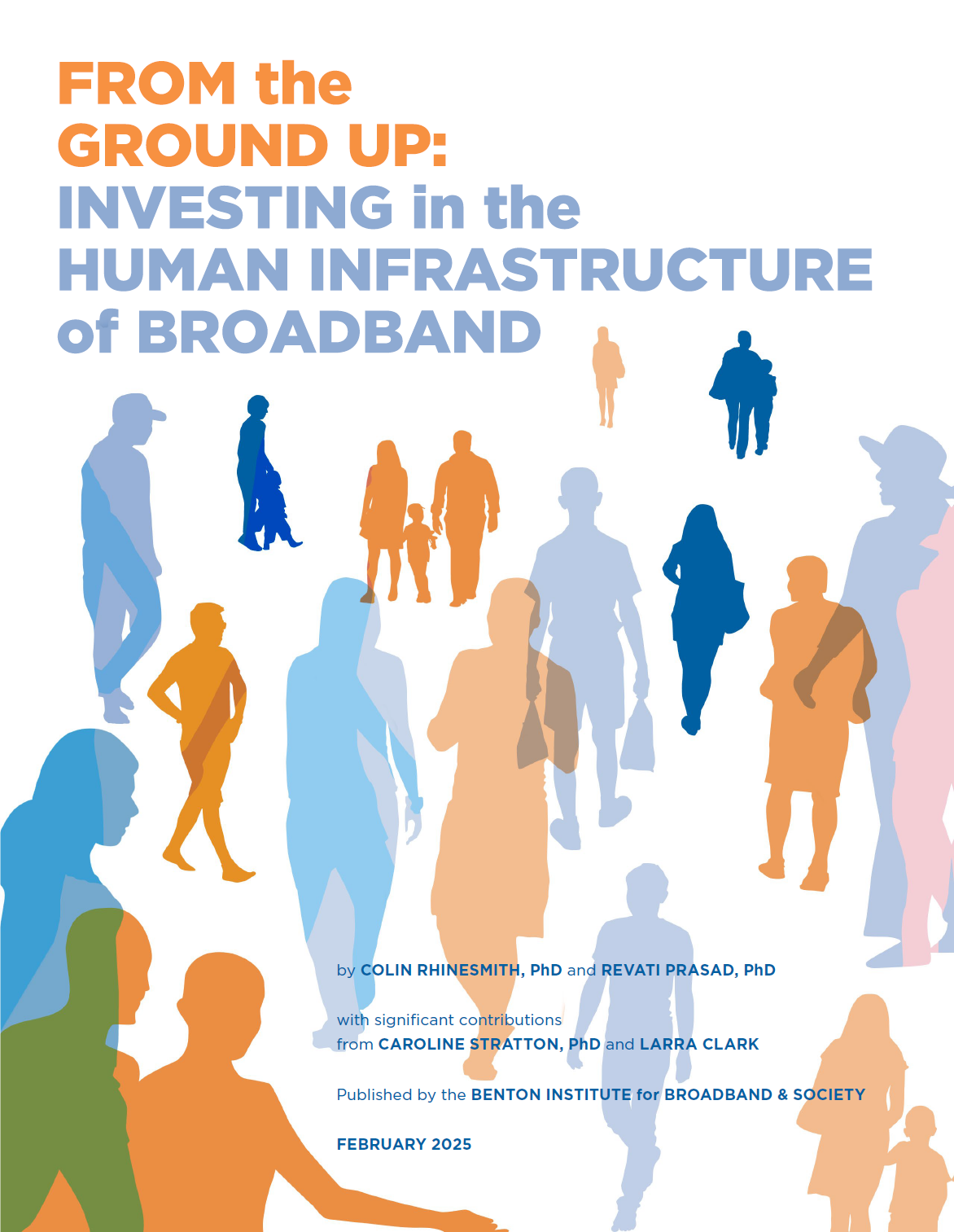Colin Rhinesmith
From the Ground Up: Investing in the Human Infrastructure of Broadband


Public Libraries, Digital Equity Coalitions, and the Public Good
Public libraries play a critical role in addressing the digital divide and advancing digital equity in their communities. However, little is known about their participation in digital equity coalitions and what this information might tell us about public libraries as partners in community-wide efforts to advance the public good. This paper seeks to address this gap in the literature by presenting findings from a pilot study of public libraries working with digital equity coalitions in the U.S.
How to Ensure Community Perspectives are Represented in Digital Equity Program Evaluations
How can participatory action research be used to develop a theory of change and an evaluation framework to benefit the digital equity field? In Developing a Digital Equity Theory of Change with Tech Goes Home, our research team discovered several findings that we believe can be useful for the U.S.
How mobile hotspots support people experiencing homelessness
This paper seeks to address a gap in mobile communication scholarship by contributing insights from a qualitative study of library patrons who checked out mobile hotspots from the Boston Public Library in Massachusetts. The findings show that although mobile hotspots provided many benefits for public library patrons in general, these devices facilitated mobile communication with a different sense of urgency for six people experiencing homelessness who also happened to be in romantic relationships.
Digital Equity and Justice in Maryland: Challenges and Opportunities
In “Digital and Equity and Justice in Maryland: Challenges and Opportunities” recently published by Economic Action Maryland, I present findings from a qualitative study that sought to answer the following research question: What is the landscape of issues related to universal broadband access, digital equity, and related community standards in Baltimore City and across the state of Maryland? My hope was that the findings would be useful for residents, policymakers, and other stakeholders interested in advancing broadband access and d

Digital Opportunities Compass
The Infrastructure Investment and Jobs Act (IIJA), which includes the Digital Equity Act of 2021 (DEA), establishes a broad framework and significant funding to advance broadband connectivity and digital equity. The law recognizes key factors and populations to address when striving for digital equity. To fully realize the full benefits of digital technology for individuals, communities, and society at large additional insights are needed. The Digital Opportunities Compass is an holistic framework for broadband and digital equity planning, implementation and evaluation.
Missing Pieces: How the FCC’s Broadband Map Misrepresents Public Libraries
The Federal Communications Commission recently released a “pre-production” draft of its new National Broadband Map in an effort to provide more precise details about where internet service does and does not exist in individual locations across the US. While much attention has been paid to how the map represents broadband service for individual households, there is much less understanding among the general public with regards to how the map represents individual community anchor institutions, such as public schools, libraries, and hospitals.
Digital Equity Ecosystems Measurement Framework
Digital equity ecosystems are interactions between individuals, populations, communities, and their larger environments that all play a role in shaping the work in local communities to advance more equitable access to technology and social, economic, and racial justice. The Digital Equity Ecosystems Measurement (DEEM) framework assumes that local coalitions play a key role in this work.
Measuring Library Broadband Networks to Address Knowledge Gaps and Data Caps
This paper presents findings from a three-year research project funded by the US Institute of Museum and Library Services that examined how advanced broadband measurement capabilities can support the infrastructure and services needed to respond to the digital demands of public library users across the US. This research sought to address the following research question: How can public libraries utilize broadband measurement tools to develop a better understanding of the broadband speeds and quality of service that public libraries receive?

The Digital Equity Action Research Fellowship
In November 2021, the Benton Institute for Broadband & Society, Black Brilliance Research Project (BBR), and Community Informatics Lab at Simmons University launched the six-city Digital Equity Action Research (DEAR) Fellowship. The DEAR Fellowship helped young adults, ages 19–24, learn participatory action research skills to examine and address the root causes of digital inequities in their communities. Participatory Action Research (PAR) is different from traditional research paradigms.

